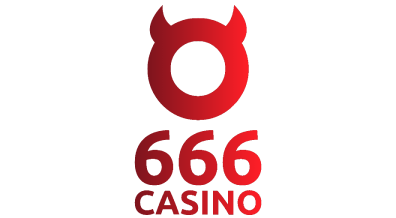In our exploration of the psychology of gambling, we delve into the intricate web of decisions that define our experiences at the tables, slots, and screens. We find ourselves captivated by the allure of chance, drawn to the promise of reward that seems just within reach.
We navigate the fine line between calculated risk and impulsive behavior, seeking to understand what drives us to gamble and how these decisions are shaped by our minds.
By peeling back the layers, we examine:
- Cognitive biases
- Emotional highs
- Social influences
Our aim is to uncover the subconscious mechanisms that fuel our choices.
By examining these psychological underpinnings, we equip ourselves with the knowledge to make more informed decisions, fostering a healthier relationship with gambling.
Join us as we embark on this enlightening journey, where we confront the complexities of our desires and the psychology that guides our every wager.
The Role of Cognitive Biases
Cognitive Biases and Gambling Decisions
Cognitive biases significantly influence our gambling decisions by skewing perception and judgment. We’re often unaware of how these biases shape our choices, creating a deceptive sense of control.
Dopamine and the Illusion of Winning
We might feel like we’re just a spin away from winning big, but it’s our brain’s dopamine-driven reward system that’s nudging us forward. This chemical messenger floods our brain with pleasure signals, making it hard to resist the urge to play again. It’s like being part of an exclusive club where the thrill of the risk overshadows the reality of the loss.
Impulse Control and Rational Decision-Making
But let’s not forget impulse control, or rather, our lack of it when gambling. We often act on impulse, driven by cognitive biases that convince us we’re making rational decisions.
In this shared experience, we’re drawn together by the allure of the game, yet we struggle against the same hurdles.
Mindful Decision-Making
Recognizing these patterns can help us make more mindful decisions, fostering a sense of unity in our journey towards better impulse control.
Understanding Emotional Responses
Our emotional responses to gambling can powerfully influence our behavior, often overriding logical thinking and leading us down a risky path. The thrill of a potential win releases dopamine, lighting up the brain’s reward centers. This rush can cloud our judgment, making it difficult to maintain impulse control.
When we’re swept up in the excitement, cognitive biases creep in, convincing us that we’re just one more bet away from success. We identify with the shared experience of the highs and lows and the communal thrill of anticipation.
However, it’s important to remember that our emotions can trick us.
- We might feel invincible when we’re winning.
- Despair can follow just as quickly when we lose.
By recognizing these emotional cues, we can start to make more informed choices.
Let’s support each other in understanding these responses and strive to create a collective awareness. Together, we can navigate the complex world of gambling with greater insight and control.
Impact of Social Environment
The Influence of Social Environment on Gambling Behaviors
Our social environment plays a crucial role in shaping our gambling behaviors and attitudes. When surrounded by friends or family who gamble, we may feel an urge to join in, seeking a sense of belonging.
Cognitive Biases and Decision Making
In social settings, cognitive biases can subtly influence our decisions, making us more likely to overestimate our chances of winning.
The excitement and anticipation of gambling can trigger dopamine release in our brains, creating a rush that’s hard to resist. This chemical reward reinforces our actions, making us more prone to repeat them despite the risks involved.
Challenges in Impulse Control
In social situations, our impulse control can also be tested. We might find it more challenging to say no when everyone around us is participating. The pressure to conform can lead us to make decisions that we wouldn’t normally make on our own.
Taking Control
By understanding the impact of our social environment, we can become more aware of how these factors influence our gambling choices. Taking steps to maintain control involves:
- Recognizing the influence of social pressure
- Being mindful of cognitive biases
- Setting personal boundaries and limits
By doing so, we can make more informed decisions and maintain healthier gambling habits.
Decision-Making Under Uncertainty
When faced with uncertainty in gambling, we often rely on heuristics and intuition to guide our choices. Our brains, seeking patterns and shortcuts, employ cognitive biases that can lead us astray. We might feel like we’re part of a savvy group when we trust our gut, but these mental shortcuts can cloud our judgment.
Dopamine plays a significant role in this process, creating a rush that feels rewarding and reinforcing our decisions, even if they’re risky. This chemical surge can make us feel connected to the excitement of the gamble, but it also challenges our impulse control.
- We might think we’re making sound decisions, but in reality, we’re swayed by immediate gratification.
Together, we need to recognize these biases and the influence of dopamine. By doing so, we can support each other in making more informed choices.
Let’s strive to maintain awareness of how uncertainty impacts our decisions:
- Recognize the biases at play.
- Understand the role of dopamine in decision-making.
- Support each other in making informed choices.
By following these steps, we ensure we don’t just follow the crowd but make choices that truly reflect our values.
Dopamine and Risk-Taking
In the realm of gambling, our pursuit of the thrill is often fueled by the brain’s release of dopamine, driving us to take risks we might otherwise avoid. This neurotransmitter, associated with pleasure and reward, creates a sense of excitement and anticipation. We all share that craving for belonging within the exhilarating world of chance and luck.
Dopamine doesn’t act alone, though. Our cognitive biases also come into play, leading us to misjudge probabilities and outcomes. For instance, the ‘gambler’s fallacy‘ tricks us into believing that past outcomes influence future events. This bias, combined with dopamine’s allure, can cloud our judgment and intensify our desire to keep playing, hoping for that elusive win.
As we explore these dynamics, we must be mindful of our impulse control. While dopamine motivates our risk-taking behaviors, it’s crucial to recognize when it’s steering us away from rational decisions.
Understanding these mechanisms brings us closer together by:
- Fostering a shared awareness
- Encouraging responsible gambling practices
Impulse Control in Gambling
Managing Impulses in Gambling
Managing our impulses is crucial when we’re faced with the immediate allure of gambling’s potential rewards. As a community, we often feel the rush of dopamine that accompanies the anticipation of winning. This chemical surge can cloud our judgment and make impulse control challenging.
Understanding Cognitive Biases
We’re not alone in this; understanding our cognitive biases can help us navigate these moments. Cognitive biases often lead us to:
- Overestimate our chances of winning
- Continue playing despite losses
By recognizing these biases, we can strengthen our resolve and make more informed decisions.
Community Support and Shared Experiences
Together, we can support one another in resisting the urge to give in to these impulses and maintain control over our actions. When we acknowledge our shared experiences, we can better manage the enticing pull of gambling.
Let’s encourage open conversations and build a supportive network that fosters awareness and self-control. By doing so, we empower ourselves to make decisions that align with our values and long-term goals.
Framing and Perception
Our Perception of Gambling
Our perception of gambling can dramatically shift based on how the risks and rewards are framed. When we hear about potential big wins, our brains light up with dopamine, encouraging us to take risks we might otherwise avoid. This response is deeply rooted in our desire to share in the excitement and success stories of our community.
Cognitive Biases
Cognitive biases can skew our understanding, leading us to:
- Overestimate our chances of winning
- Underestimate the consequences of losing
Decision Making and Framing
We might find ourselves gravitating toward games that seem easy or promising, ignoring rational calculations of risk because the framing appeals to our sense of belonging.
Importance of Impulse Control
Impulse control becomes crucial in these situations. Without it, we might:
- Chase after fleeting thrills
- Seek the camaraderie of those who’ve hit the jackpot
- Make decisions not grounded in reality
Mindful Decision Making
By being mindful of how framing influences us, we can:
- Make more informed decisions
- Preserve our resources
- Maintain our connections with others
Learning from Past Experiences
Reflecting on our past gambling experiences can help us identify patterns and avoid repeating mistakes. We’ve all felt that rush of dopamine when we win, and it’s easy to get lost in the moment, but understanding the role of cognitive biases in our decision-making is crucial.
Recognizing Cognitive Biases:
- Gambler’s Fallacy: The mistaken belief that past random events affect the likelihood of future ones.
- Illusion of Control: The belief that one can influence outcomes that are actually determined by chance.
When we recognize these biases, we can make more informed choices.
Impulse Control:
Impulse control plays a significant role in how we approach gambling. By learning from our past, we can:
- Develop strategies to manage impulses better.
- Create a healthier balance between enjoyment and responsibility.
It’s not just about avoiding losses but also fostering a sense of community among those of us who share similar experiences and challenges.
Together, we can support each other in making smarter decisions. By reflecting on our past, we build a stronger foundation for the future, ensuring that our time spent gambling is both enjoyable and mindful.
Conclusion
As you navigate the world of gambling, remember that your decisions are influenced by several factors:
1. Cognitive Biases
2. Emotional Responses
3. Social Environment
Understanding these elements can help you make more informed choices.
Key Concepts to Consider:
-
Dopamine: This neurotransmitter plays a significant role in how we experience reward and pleasure, impacting our gambling behavior.
-
Impulse Control: Strengthening this can help in resisting the urge to make hasty or risky bets.
-
Perception: How you perceive risks and rewards can greatly influence your gambling decisions.
Strategies for Improvement:
-
Learn from Past Experiences: Reflecting on previous gambling outcomes can provide valuable insights and guide future behavior.
-
Approach Decision-Making with Awareness: Being conscious of the psychological factors at play can improve your ability to manage uncertainty effectively.
-
Minimize Risks: Actively work to reduce potential losses by setting limits and understanding the odds involved.
By staying mindful of these psychological factors, you can engage in gambling activities more responsibly and with greater awareness.

